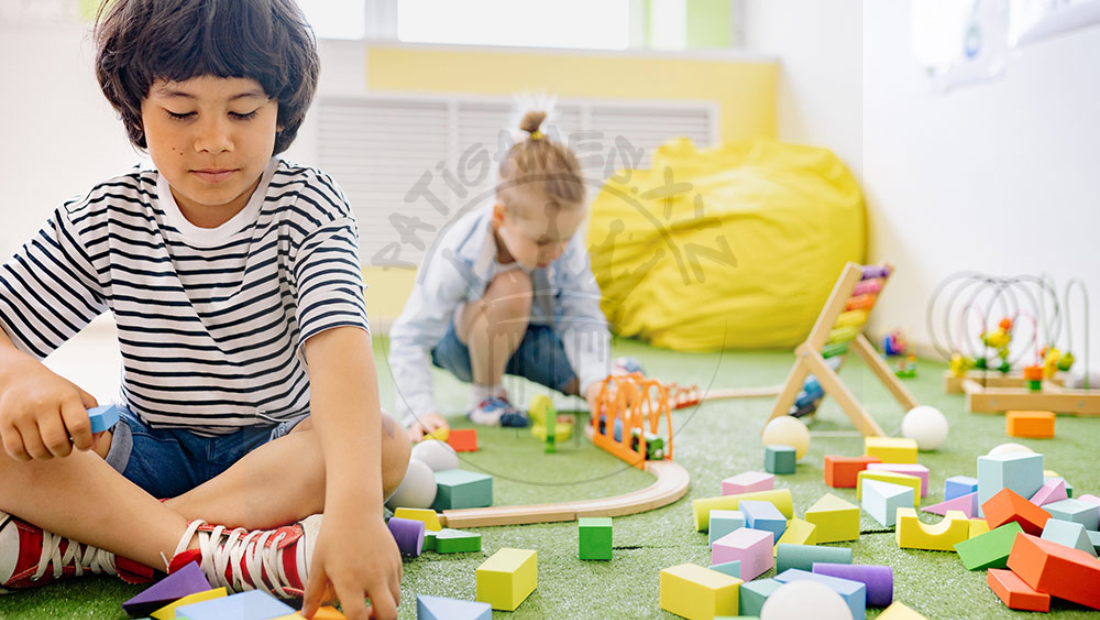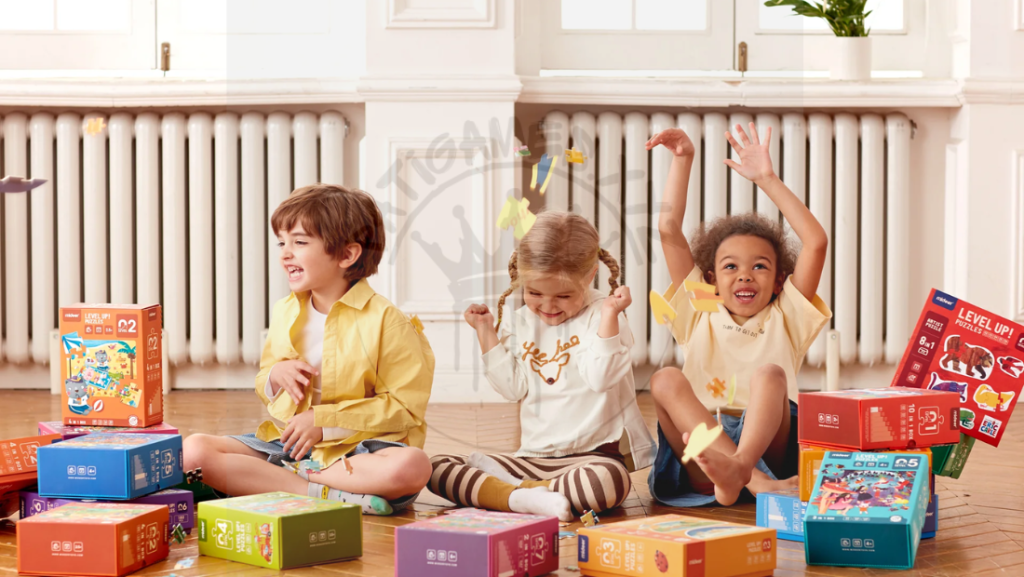Mathematics is a fundamental skill that goes beyond numbers; it teaches problem-solving, logical reasoning, and critical thinking. For children, developing these skills early can have a lasting impact on academic success and real-world applications. Educational toys for math skills provide an engaging way to introduce mathematical concepts while fostering essential cognitive abilities. These toys make learning fun and interactive, helping children grasp concepts like counting, geometry, and patterns through hands-on play.
In this article, we’ll explore how educational toys for math skills aid in developing problem-solving and critical thinking, the benefits they offer, and top toy recommendations to support your child’s learning journey.
1. The Importance of Math Skills in Early Childhood
Math skills are vital for a child’s overall cognitive development and play a critical role in shaping their problem-solving abilities.
Why Early Math Skills Matter:
- Foundation for Learning: Basic math skills are building blocks for advanced subjects like science and engineering.
- Critical Thinking: Solving math problems enhances logical reasoning and analytical skills.
- Real-Life Applications: Math is essential in everyday tasks, from budgeting to measuring and time management.
Educational toys for math skills make it easier to introduce these concepts in a way that children find approachable and exciting.
2. How Educational Toys for Math Skills Foster Problem-Solving
Problem-solving is one of the most important life skills, and math-related educational toys provide a hands-on way to cultivate this ability.
Encouraging Exploration and Experimentation:
Math toys allow children to explore different approaches to solving problems, teaching them that there’s often more than one solution.
Building Logical Thinking:
Toys like puzzles and sorting games require kids to identify patterns, sequences, and relationships, which are core components of logical thinking.
Developing Perseverance:
When children use educational toys to solve complex problems, they learn to persist and try different strategies until they succeed.
Promoting Real-World Connections:
Math toys often mimic real-world scenarios, such as counting money or measuring objects, helping kids understand how math applies to everyday life.

3. Benefits of Educational Toys for Math Skills
Using educational toys to teach math offers numerous advantages for children’s learning and development.
Makes Learning Fun:
Math can be intimidating for some kids, but educational toys turn learning into a playful experience.
Enhances Focus and Patience:
Solving math-related puzzles or building structures requires concentration and patience, skills that transfer to other areas of life.
Encourages Teamwork:
Many math toys are designed for collaborative play, teaching kids how to work with others to solve problems.
Builds Confidence:
When children successfully complete a math-related challenge, it boosts their confidence and encourages a positive attitude toward learning.
Supports Independent Learning:
Educational toys empower children to explore and learn at their own pace, fostering independence and self-motivation.
4. Top Educational Toys for Math Skills
Here are some of the best educational toys designed to develop math skills, problem-solving, and critical thinking:
Counting Bears
Counting bears are colorful manipulatives that help young learners practice counting, sorting, and basic arithmetic.
Mathlink Cubes
Mathlink cubes are versatile tools for teaching addition, subtraction, multiplication, and even early geometry.
Tangrams
Tangrams are geometric puzzles that challenge children to recreate shapes using a set of pieces.
Abacus
The classic abacus remains one of the most effective tools for teaching math fundamentals.
Cash Register Toys
Pretend cash registers with play money introduce financial literacy and basic math skills.
Fraction Blocks
Fraction toys use physical blocks to help children visualize and understand fractions.
5. How to Choose the Right Math Educational Toys
When selecting educational toys for math skills, it’s essential to consider your child’s age, interests, and developmental needs.
Match the Toy to Your Child’s Age:
- Toddlers (1–3 years): Focus on basic counting toys, shape sorters, and stacking games.
- Preschoolers (3–5 years): Introduce puzzles, counting manipulatives, and simple addition/subtraction tools.
- School-Age Kids (6+ years): Opt for STEM kits, fraction toys, and geometry puzzles.
Look for Versatility:
Choose toys that can grow with your child, offering multiple ways to play and learn.
Prioritize Durability and Safety:
Ensure the toys are made from safe, high-quality materials that can withstand rough play.
Incorporate Real-World Concepts:
Toys like cash registers and measuring tools help kids understand how math applies to everyday life.
6. The Role of Math Toys in Critical Thinking Development
Critical thinking is about analyzing information, making decisions, and solving problems, all of which are essential for academic and life success. Educational toys for math skills nurture critical thinking by encouraging children to:
- Analyze Patterns: Identify recurring sequences in puzzles or sorting games.
- Make Predictions: Anticipate outcomes when building structures or solving equations.
- Evaluate Solutions: Assess whether their answers make sense and refine their approach if necessary.
7. Fun Activities Using Math Educational Toys
Here are some creative ways to incorporate math toys into playtime:
Counting Challenges:
Use counting bears or Mathlink cubes to create counting games or simple addition problems.
Shape Hunts:
Involve tangrams in a shape hunt where kids match puzzle pieces to objects around the house.
Pretend Shopping:
Set up a pretend store with a cash register toy and have kids practice counting money and making change.
Fraction Recipes:
Use fraction blocks to explore fractions while baking, teaching kids how to measure ingredients.
8. Testimonials from Parents and Educators
Parents and educators love the benefits that math educational toys bring to the table:
- “The abacus has been a lifesaver for helping my child grasp addition and subtraction. It’s so hands-on!”
- “Tangrams are fantastic for teaching spatial reasoning. My students love turning the shapes into creative designs.”
- “The cash register toy made math so fun for my kids—they didn’t even realize they were learning!”
9. Why Math Educational Toys Are a Smart Investment
Investing in math educational toys provides long-term benefits for your child’s development. These toys:
- Support School Readiness: Prepare kids for formal education by introducing foundational concepts.
- Foster Lifelong Skills: Teach critical thinking, problem-solving, and logical reasoning.
- Encourage Positive Math Attitudes: Make math enjoyable, helping kids develop confidence in their abilities.
10. Conclusion
Educational toys for math skills are powerful tools for helping children develop problem-solving and critical thinking abilities. From counting bears to tangrams, these toys make learning math engaging, fun, and interactive, ensuring that kids build a strong foundation for future success.
By choosing the right toys and incorporating them into everyday activities, parents can turn playtime into a valuable learning experience. Explore the world of math educational toys today and give your child the gift of smart, sustainable, and joyful learning.

